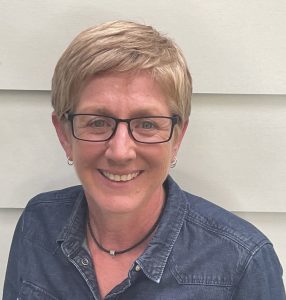
Kath Thorburn
Kathryn Thorburn 30 years’ experience as a mental health clinician, educator, facilitator, and consultant, and as a family member. Kath is recognised for her work in co-design and co-production, project management, curriculum development and delivery, and curating innovative mental health events and projects. Kath has experience working in public mental health services and educational institutes, and co-founded inside out, a mental health consultancy with a reputation for collaborative and lived experience led approaches. Kath is a PhD candidate at the Centre for Primary Health Care and Equity, UNSW Sydney.
Presentation
Abstract title: Co-designing a Physical Health Conversation Guide: Working together for hope and health
Presentation type: General Presentation
Author(s): Kathryn Thorburn1, Shifra Waks1, Bani Aadam1, Professor Mark F Harris1, Dr Catherine Spooner1, Professor Karen R Fisher2
1Centre for Primary Health Care and Equity, University of New South Wales, Sydney, Australia, 2Faculty of Arts and Social Sciences, Social Policy Research Centre, UNSW Sydney, Australia
Abstract:
Introduction: Primary care is the main setting in which the physical health needs of people who experience mental health issues are addressed. However, mental health service users and primary care providers report significant barriers to accessing and providing physical healthcare, with obstacles occurring at the individual, practice, and systems levels. Co-design, a process for developing solutions to complex problems that privileges lived expertise, provides a forum where service users and providers can collaborate to improve healthcare services and relationships.
Method: This research involved co-designing a practical approach to improving mental health service users’ physical health care in primary care settings and the research design for testing it. It also explored the co-design process, how outcomes were achieved and the co-designers’ experiences. People with lived experience collaborated as co-designers, co-researchers, co-facilitators, and members of the lived experience advisory group.
Records and documents from co-design activities were collected. Co-designers’ experiences of the process were obtained via group and individual interviews. Transcribed audio-recordings of individual and group interviews, project documentation and images were coded and analysed thematically.
Results and findings: Six people with lived experience and five service providers (including GPs) participated in the online co-design. Thirty barriers to physical healthcare and 12 potential solutions were identified. The Physical Health Conversation Guide (PHCG) was selected (based on feasibility and impact), developed and prototyped. The research findings emphasise the influence of concurrent dual processes in creating the conditions for new understandings, relationships, and action, with time as a key mediating element.
Discussion: Co-design recognises the value of lived and other expertise in co-creating new knowledge. For its generative potential to be realised, the co-design process needs to create and hold space for emergence, uncertainty and shifts in power. This research has implications for the translation of co-design principles in a range of healthcare settings.
